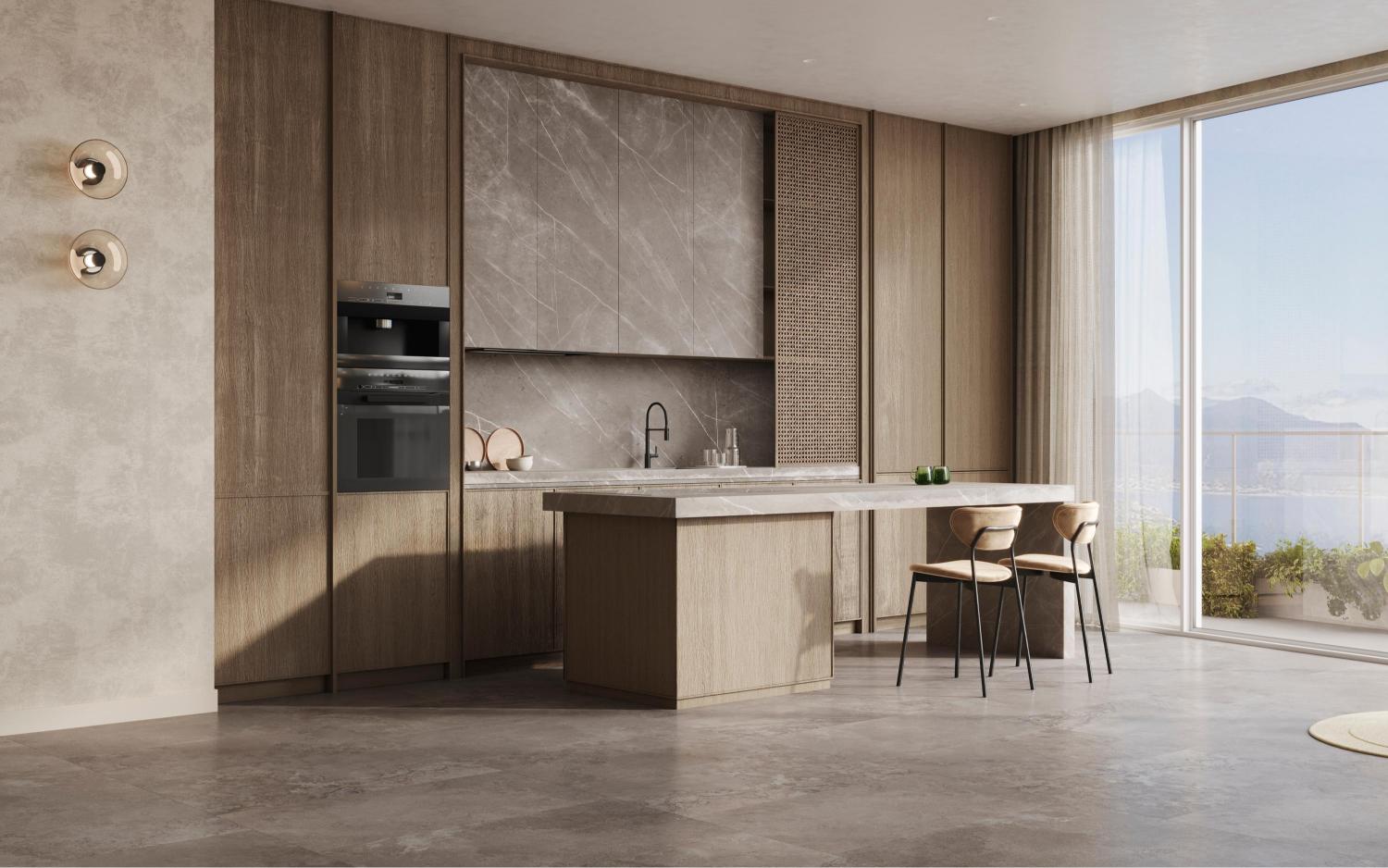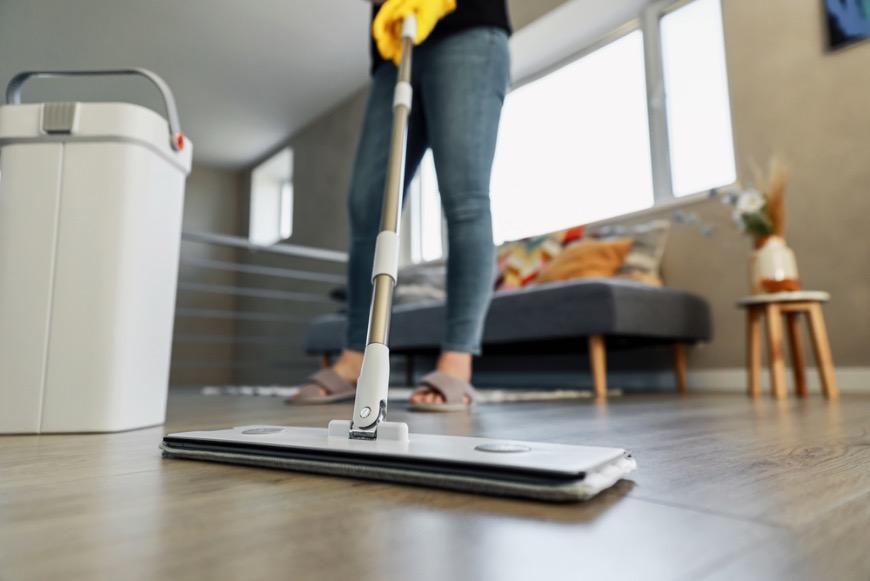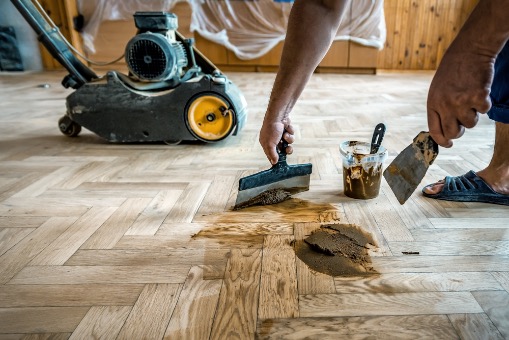Choosing the right flooring for a space is not just a matter of aesthetics. Flooring influences the functionality, durability and even the perceived comfort of a home or office. But with so many alternatives available, the big question arises: what types of interior flooring are most suitable for each project?
Types of interior flooring
In this guide, we will explore the most commonly used options, their advantages and the contexts in which they shine most, with examples of professional solutions such as the Yvyra collections.
Interior ceramic flooring
Interior ceramic flooring is a classic that never goes out of style. It stands out for its resistance to moisture and wear, making it the favourite choice for kitchens and bathrooms. They also offer a wide range of finishes: from stone imitations to pieces that simulate wood with great realism.
Their main advantage is that they are easy to clean and have a long service life. However, they tend to be colder to the touch, so they need to be complemented with carpets or underfloor heating systems in cold climates.
Their main advantage is that they are easy to clean and have a long service life. However, they tend to be colder to the touch, so they need to be complemented with carpets or underfloor heating systems in cold climates.
Interior wood flooring
Wood is synonymous with warmth and elegance. Interior wood flooring creates a cosy, natural and sophisticated atmosphere. They are especially popular in living rooms and bedrooms, where their texture and tones enhance the feeling of comfort.
In the case of Yvyra, collections such as 10AK Único offer wooden floors with versatile designs ranging from rustic styles to minimalist finishes. Innovative proposals such as Millesime, which combines technical resistance with natural aesthetics, also stand out.
However, wooden floors require more careful maintenance than other materials. It is advisable to avoid excessive moisture and use specific products to preserve their shine and durability.
Microcement flooring
Microcement has established itself as one of the most modern solutions for contemporary projects. This type of flooring offers visual continuity, as it has no joints, which amplifies the feeling of spaciousness in small areas.
Its advantages include mechanical resistance, the possibility of customising colours and finishes, and its easy combination with industrial or minimalist styles. However, it requires professional application to prevent cracks from forming over time.
Interior vinyl flooring
Interior vinyl flooring has evolved enormously in recent years. Today, they offer high-quality finishes that imitate wood, marble, or ceramic. Their main value is their versatility: they are resistant, economical, and easy to install, especially in click format.
In addition, they are very comfortable to walk on and absorb noise better than other floorings, making them an interesting option for homes with children or flats in communal buildings.
Types of interior parquet flooring
When discussing types of interior parquet flooring, it is important to distinguish between several options:
- Solid parquet: made entirely of hardwood. It offers great aesthetic value and can be sanded several times to renew its surface.
- Multilayer parquet: combines a top layer of hardwood with lower layers of other materials, ensuring stability and resistance.
- Herringbone or chevron parquet: more than a type of material, it is a laying pattern that brings dynamism and elegance to spaces.
The Yvyra collections include parquet options designed to suit both private homes and demanding contract projects.
FAQs about types of interior flooring
What is the most durable flooring?
It depends on the use. Ceramic and microcement stand out for their resistance in high-traffic areas, while wood, if well cared for, can last for generations.
What flooring is best for a bedroom?
Interior wood or vinyl flooring is most recommended, as it provides warmth and acoustic comfort.
Is parquet more delicate than wooden flooring?
Solid parquet requires more care, but it also offers greater value and the possibility of being renovated several times.
Can microcement be installed over existing flooring?
Yes, as long as the base is level and in good condition, which facilitates quick renovations without major works.
Are vinyl floors resistant to moisture?
Yes, many current models are water-resistant, making them an interesting alternative for kitchens or high-traffic areas.
All in all, the types of indoor flooring are as varied as the projects in which they are used. From the durability of ceramic to the warmth of wood or the modernity of microcement, each option responds to different needs and styles.
If you are looking for inspiration or innovative solutions, we recommend exploring the Yvyra collections, where tradition, technology and design come together to offer flooring capable of transforming any space into a unique, functional and aesthetic environment.


